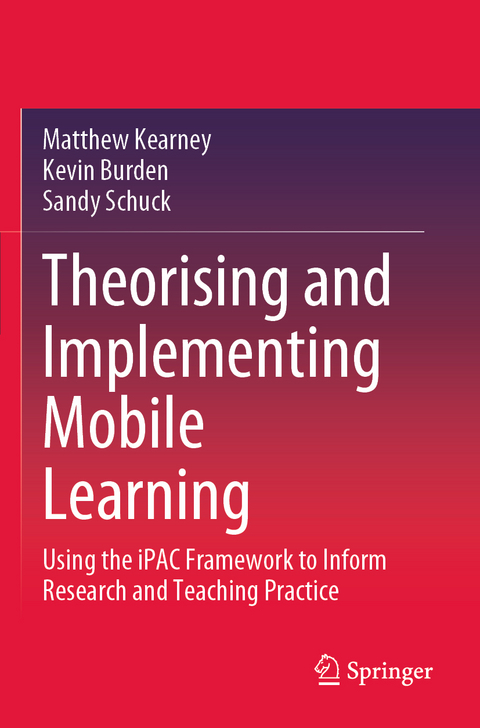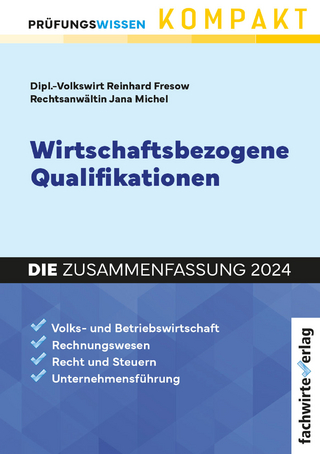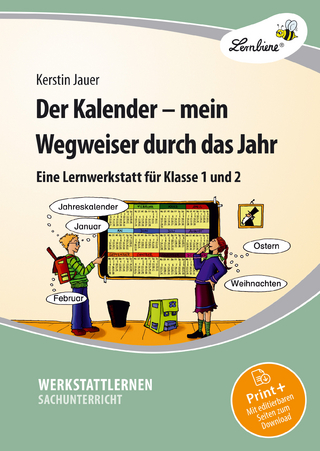
Theorising and Implementing Mobile Learning
Springer Verlag, Singapore
978-981-15-8279-0 (ISBN)
Matthew Kearney is an Associate Professor of Education in the Faculty of Arts and Social Sciences (FASS) at the University of Technology Sydney (UTS). He has acted as Director of the STEM Education Futures Research Centre at UTS and currently leads the Initial Teacher Education Cluster in the School of International Studies and Education at UTS. For over twenty years, Kearney’s research projects in the field of technology-enhanced learning (TEL) have investigated how new and emerging learning technologies can be used in pedagogically transformational ways. Kevin Burden is a Professor in Educational Technology in the Faculty of Arts, Culture and Education at the University of Hull. Over the past twenty years, Burden has participated in and led many national and international technology in education related projects and initiatives and has secured funding in excess of £1.7m from external sources. His primary research focus and work over this period hasfocused on the professional development and learning of educators and the role that technology can play in mediating and supporting this learning. He has worked with a large number of national UK providers and government agencies. Sandy Schuck was a Professor of Education in the Faculty of Arts and Social Sciences (FASS) at the University of Technology Sydney (UTS) until her retirement in May 2020. She is currently an Adjunct Professor of Education at UTS. She was the Director of Research Training in FASS 2011-2018. She was a founding co-director of the STEM Education Futures Research Centre at UTS. She has researched extensively in the areas of mobile learning, technology-enhanced learning, mathematics education and teacher professional learning and has secured research funding in excess of $2,000,000.
1 Introducing the book.- Section 1 Learning in the mobile age.- 2 The digital landscape of education.- 3 Mobile learning - ubiquitous learning.- 4 Seamless learning or learning in the Third Space.- Section 2 Frameworks for understanding mobile learning.- 5 Mobile learning theories.- 6 Rationale for a mobile pedagogical framework.- 7 Evolution from MPF to iPAC.- Section 3 Methods of investigating mobile learning using iPAC.- 8 Development and use of the iPAC survey tools.- 9 Evaluating and selecting education apps using the iPAC rubric.- 10 Sentiment analysis using iPAC.- Section 4 Case studies and projects using iPAC.- 11 The development of a mobile learning toolkit.- 12 Optimising Science and Mathematics mobile learning.- 13 School based studies: Norway, Germany and the Netherlands.- 14 Designing and Evaluating Innovative Mobile Pedagogies (DEIMP).- 15 Teacher educators using iPAC.- Section 5 Future possibilities for mobile learning.- 16 Where to next?.- 17 What have we learned?.
| Erscheinungsdatum | 29.10.2021 |
|---|---|
| Zusatzinfo | 24 Illustrations, color; 12 Illustrations, black and white; XIX, 253 p. 36 illus., 24 illus. in color. |
| Verlagsort | Singapore |
| Sprache | englisch |
| Maße | 155 x 235 mm |
| Themenwelt | Schulbuch / Wörterbuch ► Unterrichtsvorbereitung ► Unterrichts-Handreichungen |
| Geisteswissenschaften ► Psychologie ► Pädagogische Psychologie | |
| Sozialwissenschaften ► Pädagogik ► Allgemeines / Lexika | |
| Sozialwissenschaften ► Pädagogik ► Schulpädagogik / Grundschule | |
| Schlagworte | app evaluation rubric • authencity in mobile pedagogy • collaboration in mobile pedagogy • IPAC • Learning and Instruction • M-Learning • Mobile Learning • mobile pedagogical framework • Mobile technologies • personalisation in mobile pedagogy • sentiment analysis • teacher toolkit |
| ISBN-10 | 981-15-8279-3 / 9811582793 |
| ISBN-13 | 978-981-15-8279-0 / 9789811582790 |
| Zustand | Neuware |
| Informationen gemäß Produktsicherheitsverordnung (GPSR) | |
| Haben Sie eine Frage zum Produkt? |
aus dem Bereich


